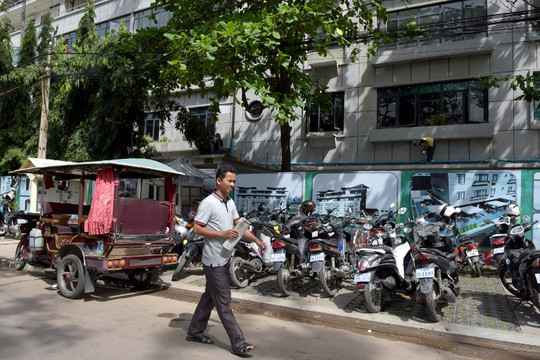Less than two months out from Cambodia’s general elections due on July 29, the National Election Commission (NEC) has released a code of conduct for reporters covering the ballot. The International Federation of Journalists (IFJ) strongly criticized the news rules for restricting press freedom and an attempt to control the election reporting.
The code of conduct for election observers was released in Phnom Penh on May 21 by the NEC. The code of conduct which is vague forbids journalists from expressing ‘personal opinion or prejudice’, or conducting unauthorized interviews at polling booths. They are also barred from broadcasting news that leads to ‘confusion or loss of confidence’ in the election. Voice of America reported that NEC spokesman Hang Puthea said the provisions meant journalists reporting on the elections ‘should not have your own self-evaluations or ideas’. VOA reported that Puthea also said that reporters should ask about the outcome at different ballot boxes or seats won. However, he could not explain how the media could cover the elections without these basic reporting tasks.
More concerning for the media, is that those found to violate the new guidelines could be fined under the election law, with Article 142 of the election law imposes fines of 5 million to 30 million ($1,250 - $7,400) for such infractions.
This latest attempt by the government to control the narrative around the elections comes after a turbulent 12 months for Cambodia’s media. Last month The Phnom Penh Post had 23 of its staff resign after a report over the newspaper’s sale was removed, after the new owner took grievance over it. Last September, The Cambodia Daily ceased production after it was slapped with a USD6.3 million tax bill, which came at the same time that Radio Free Asia and Voice of America were among 18 radio stations taken off the air.
The IFJ said: “As has been the case over the past 12 months, each government action is a further attempt to control the outcome of the upcoming elections. These latest guidelines, as with the shutdowns last year, have robbed Cambodians of any chance of vital information, to make informed political decisions.”
The IFJ also encourages all journalists and media workers to take extra precautions for their personal safety as they cover elections events and rallies. See the IFJ Election Reporting Handbook for specific safety information.
For further information contact IFJ Asia-Pacific on +61 2 9333 0946
The IFJ represents more than 600,000 journalists in 140 countries
Find the IFJ on Twitter: @ifjasiapacific
Find the IFJ on Facebook: www.facebook.com/IFJAsiaPacific

